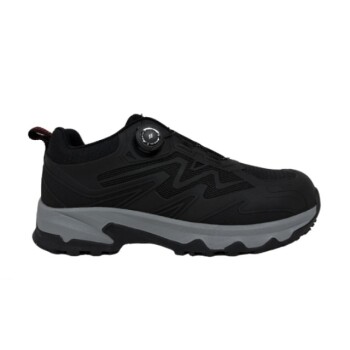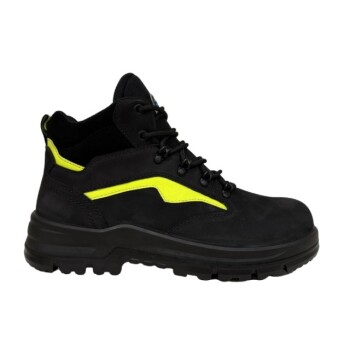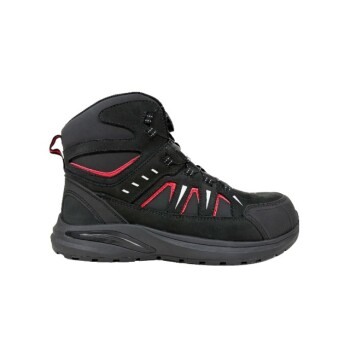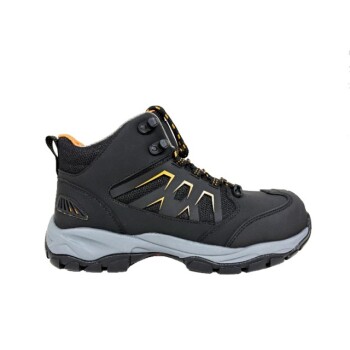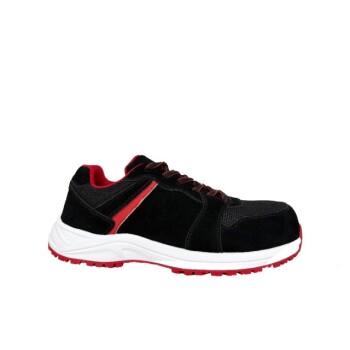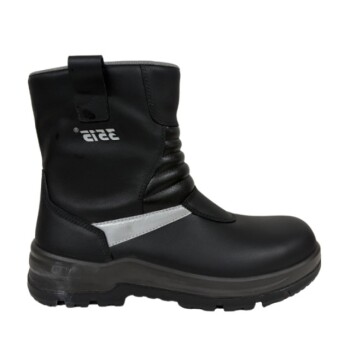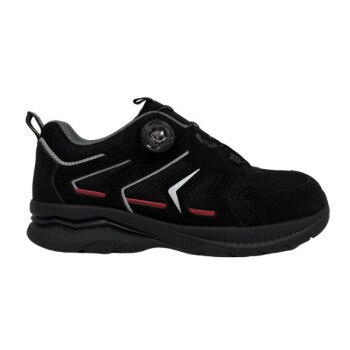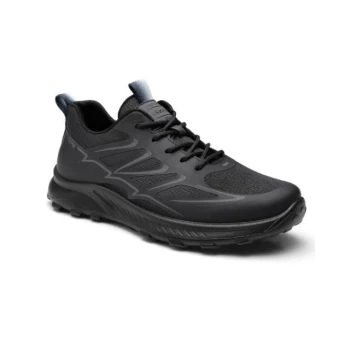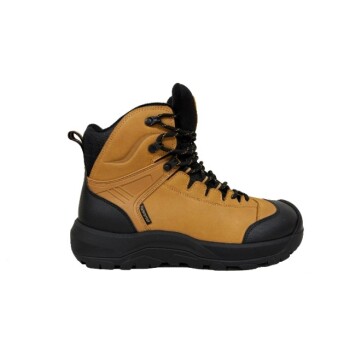The primary reason to wear slip-resistant shoes is to dramatically reduce your risk of a workplace injury. For anyone working in environments with wet, greasy, or otherwise slick floors—like food service, healthcare, or industrial settings—these shoes are a critical piece of personal protective equipment designed to prevent dangerous and costly slips, trips, and falls.
The decision to wear slip-resistant shoes is not merely about meeting a workplace requirement; it is a fundamental investment in your personal safety, daily comfort, and long-term well-being on the job.
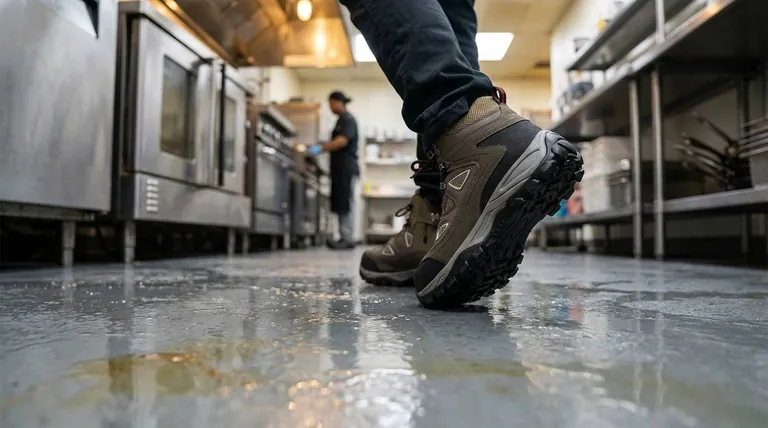
The Problem: The High Cost of a Simple Slip
A Prevalent Workplace Hazard
Slips, trips, and falls are a significant occupational hazard. According to the CDC, they are the third most common cause of non-fatal work-related injuries in the United States.
These incidents are not minor inconveniences. They can lead to serious injuries, lost work time, and significant medical expenses for both the employee and employer.
Who is Most at Risk?
Certain professions carry a much higher risk. Workers in restaurants, hospitals, and factories constantly navigate potentially slippery floors.
Older workers are also particularly vulnerable, as a fall is more likely to result in a severe injury. For these groups, slip-resistant footwear is not just recommended; it's essential.
How Slip-Resistant Technology Works
The Principle of Friction
At its core, slip resistance is about maximizing friction—the force that resists motion when two surfaces rub against each other. The more friction between your shoe and the floor, the better your grip.
The Role of the Sole
The effectiveness of a slip-resistant shoe comes down to its outsole. These soles are typically made of a soft rubber compound that provides a better grip than harder materials.
The Importance of Tread Design
The design of the tread is just as crucial as the material. Effective slip-resistant shoes feature deep, multi-directional grooves or patterns.
These channels are engineered to move water, oil, and other liquids out from under the shoe. This allows the rubber sole to make direct contact with the floor, creating a secure grip even on contaminated surfaces.
Key Features of an Effective Shoe
Choosing the right shoe involves more than just looking for a "slip-resistant" label. Several key factors determine a shoe's true effectiveness and value.
Sole Composition and Durability
Look for shoes made from high-quality rubber that can withstand abrasion and exposure to chemicals or oil without degrading. A durable sole ensures the shoe remains effective for a longer period, providing better long-term value.
Water Resistance
For many jobs, the upper part of the shoe needs to protect your feet from getting wet. A water-resistant material keeps you comfortable and helps prevent skin issues that can arise from prolonged moisture exposure.
Comfort and Support
Since these shoes are often worn for long shifts, comfort is paramount. Look for features like cushioned insoles, proper arch support, and a roomy toe box to accommodate natural foot swelling throughout the day. Lightweight materials also reduce strain on your legs and back.
Industry Certification
To ensure a shoe meets rigorous safety standards, check for industry certifications. Tests like the Brungraber Mark II provide an objective measure of a shoe's slip-resistant capabilities.
Making the Right Choice for Your Goal
Ultimately, the best shoe depends on the specific demands of your job and your personal needs.
- If your primary focus is a restaurant or food service environment: Prioritize shoes with excellent grip on greasy and wet floors, and ensure they are easy to clean.
- If your primary focus is a medical or hospital setting: Choose a lightweight, comfortable shoe with fluid-resistant uppers to protect against spills.
- If your primary focus is an industrial or factory floor: Look for multi-layer protection, such as a steel toe and puncture-resistant sole, in addition to superior slip resistance.
- If your primary focus is all-day comfort during long shifts: Select a shoe with superior cushioning, arch support, and lightweight construction to minimize fatigue.
Investing in the right pair of slip-resistant shoes is a direct investment in your own health and safety at work.
Summary Table:
| Feature | Key Benefit |
|---|---|
| Specialized Rubber Sole | Maximizes friction on wet, greasy, or oily surfaces. |
| Multi-Directional Tread | Channels liquids away to maintain direct floor contact. |
| Water-Resistant Uppers | Keeps feet dry and comfortable, preventing skin issues. |
| Industry Certifications | Ensures the shoe meets rigorous safety standards. |
| All-Day Comfort | Cushioned insoles and arch support reduce fatigue. |
Protect your workforce and reduce liability with professional-grade footwear from 3515. As a large-scale manufacturer, we produce a comprehensive range of slip-resistant shoes and boots for distributors, brand owners, and bulk clients. Our production capabilities encompass all types of safety footwear, ensuring you get durable, certified, and comfortable solutions tailored to your industry's specific hazards. Contact our experts today to discuss your needs and receive a customized product catalog.
Visual Guide
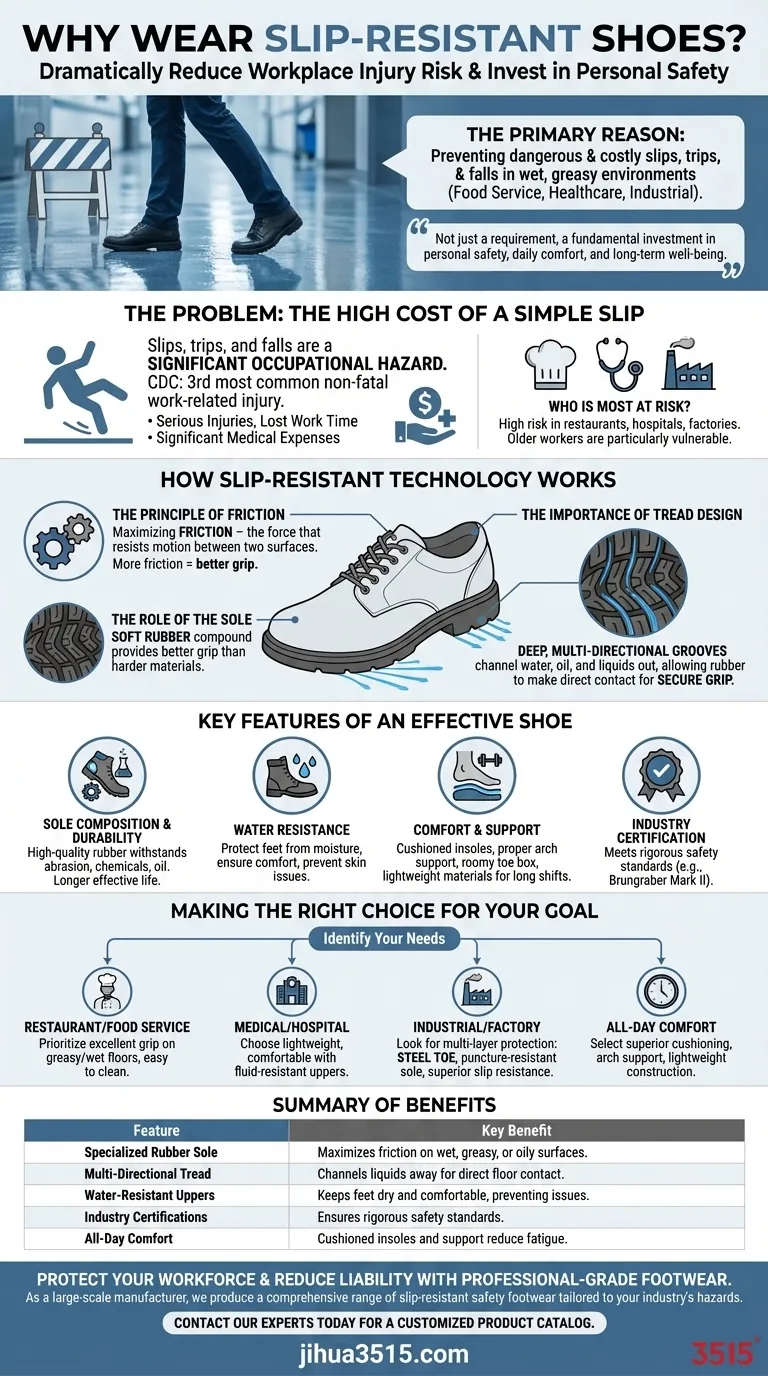
Related Products
- Safety Footwear Wholesale Manufacturer for Custom OEM/ODM Production
- Advanced KPU Athletic Safety Shoe with Steel Toe Cap Anti-Slip Rotary Lacing System
- Wholesale Premium Waterproof Nubuck Safety Shoes Boots
- Wholesale Customizable Safety Boots Durable & Protective Footwear Manufacturing
- Heavy Duty Nubuck Safety Boots Safety Shoes for Global Distribution
People Also Ask
- How can you tell when slip-resistant shoes need replacing? Spot the Worn-Out Tread Before It's Too Late
- What makes a shoe classified as non-slip? The Science of Sole Design for Maximum Grip
- What is the primary role of anti-slip safety shoes in palm oil mill boiler stations? Ensure Worker Safety & Stability
- What is the role of professional-grade anti-slip footwear in gait training? Enhance Safety & Stability in Rehab
- What are the essential qualities of shoes for servers and waiters? Invest in Safety, Comfort & Durability
- What types of non-slip shoes are recommended for outdoor activities? Find Your Perfect Traction Solution
- Why are non-slip shoes vital for workers? Essential Engineering for Workplace Safety
- Why are high-performance slip-resistant outsoles core to functional footwear? Essential Safety for Neurological Needs

